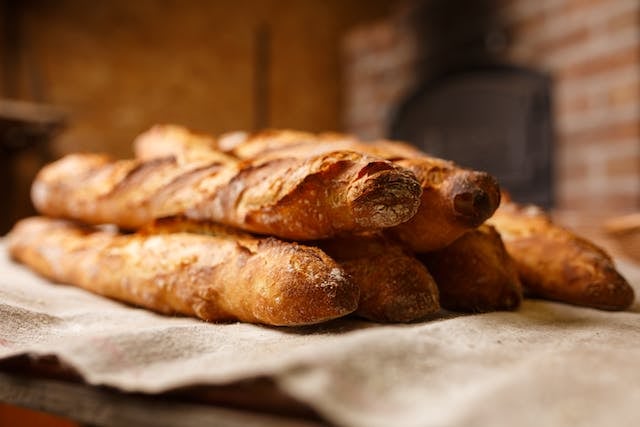The Most Fascinating Food Rituals from Zulu
Located in the heart of Southern Africa, the Zulu people boast a vibrant culture that is deeply intertwined with their unique culinary traditions. From the rhythmic beats of their traditional dances to the colourful ceremonies honouring ancestors, every aspect of Zulu life is a celebration. Food, of course, plays a pivotal role in this cultural tapestry, with breakfast, lunch, and dinner habits serving as opportunities to understand Zulu customs and traditions.
Mildred, our knowledgeable Zulu teacher, graciously spent an afternoon enlightening us about the intricate world of Zulu food habits, and we found our time together so inspiring that we’ve decided to write a blog with everything we’ve learned from her. Because, as Mildred says, “food is more than sustenance for the Zulu; it’s a bridge to our ancestors, a reflection of our history.”
So let’s get started.
→Sign Up Now: Free Trial Zulu Lesson With a Native Teacher!←
Nourishing Mornings with Zulu Porridge
At the dawn of each Zulu day, the comforting aroma of porridge fills the air, marking the beginning of a nourishing ritual. The heart of this breakfast staple lies in the preparation of a mealie meal, gently simmered in boiling water, and stirred until it reaches the perfect texture.
But here’s where tradition takes a flavourful turn—some households keep a blend of cold water and mealie meal, allowing it to ferment for two days. This results in a delightful sour note that adds a unique twist to the breakfast table, a taste cherished by every member of the Zulu family.
In the spirit of resourcefulness, Zulus never discard leftover porridge. Instead, these remnants find a second life in the creation of amahewu, a refreshing porridge drink that captures the essence of sustainable culinary practices. As Mildred, our Zulu teacher, emphasizes, “Every spoonful of porridge is a connection to our roots, and nothing goes to waste in our kitchens.”
Bread Is Always On the Table
Bread is a daily fixture on Zulu lunch tables, providing a familiar backdrop to midday meals. Tea, once a breakfast staple, has made way for modern choices like coffee, milo/hot chocolate, and healthy juices, showcasing the Zulu culture’s openness to contemporary influences, particularly in the last decades.
However, tea remains a constant, accompanying every lunch with its timeless warmth. In these daily rituals, bread serves not only as sustenance but also as a cultural bridge—its simple presence on Zulu tables is a symbol of cosiness and togetherness. But, how is bread prepared in Zulu? According to Mildred, ujeqe (Steam Bread) is a type of bread that Zulu people make by combining flour, yeast, sugar, salt, and warm water. And it’s one of the simplest but most delicious flavours you’ll ever taste!

Have a Nice Afternoon Snack
In Zulu culture, the afternoon snack holds a significant place, differing from the norms of Western traditions. This time of the day is marked by a variety of flavours that reflect the local traditions.
When we asked Mildred what Zulu people eat between lunch and dinner, she gave us a long list of delicious Zulu food. Ummbila, either freshly boiled or roasted mealies, is a ubiquitous snack for every Zulu family, providing a satisfying crunch and a burst of flavour. Additionally, amadumbe, best enjoyed when boiled, stands as a testament to the Zulu love for root vegetables, complemented by a sprinkle of salt. Ubhatata, or sweet potatoes, are not only boiled and savoured as a snack but also serve as a versatile base for curries, showcasing the adaptability of Zulu culinary practices. Chicken gizzards, too, find their place among Zulu snacks, offering a protein-rich option for those seeking a quick and flavourful bite.
Oh, and let us not forget about fruit. Cultivated locally, fruit plays a dual role in Zulu snacking habits—they serve as a refreshing snack on their own, but they can also be included in dinner preparations.
Zulu’s Most Traditional Drink
In the realm of Zulu traditions, beverages hold a distinct place, with an array of drinks that reflect interesting aspects of Zulu culture. A noteworthy ritual involves serving Zulu men with isizulu, a sorghum beer, immediately after dinner. But this beer cannot be served in any container. The size of the umancishana, the smallest calabash, is the ideal choice because it is believed to be sufficient to quench a man’s thirst.
While the umancishana has always been reserved for men, there has been a recent shift in cultural dynamics, and nowadays, women also partake in the consumption of isizulu, breaking away from historical restrictions.
However, it’s crucial to acknowledge that the cultural brewing of isizulu, or sorghum beer, is the exclusive domain of women. Witnessing a male individual engage in the brewing process is considered taboo, emphasising the gender-specific nature of this age-old tradition.
Goats in Zulu Culture
Goats hold a central role in Zulu culture, becoming the focal point of nearly every ritual. The ritualistic process begins with the burning of impepho (incense) before the goat is slaughtered. In a traditional setting, the eldest man in the household engages in a dialogue with ancestors while moving the incense container around the goat, establishing a spiritual connection.
This ritual, involving the slaughtering of a goat, is integral to various ceremonies within Zulu culture, including the following events:
- When one changes a surname, a goat is slaughtered to introduce him/her to ancestors.
- When a child is born.
- When someone has passed on
- When a month has lapsed after the death of a family member.
- When a son is going to pay lobola (bride price) to a bride’s family.
- When the bride’s family accept a son-in-law.
- When a groom brings gifts (izibizo) into bride’s family.
- When a bride brings gifts (umbondo) to the groom’s family.
- On the wedding day before the cow is slaughtered, a goat is also slaughtered by both families.
The Customary Way of Serving Ceremonial Goat Meat
In the customary preparation of ceremonial goat meat among the Zulu, large three-legged pots are employed to cook a goat, with idombolo (a traditional dumpling) placed atop the meat. Given the ceremonial nature of the meat, it is devoid of spices, with salt added according to taste. Isizulu (sorghum beer) is poured into calabashes by men and exclusively served by them. The designated server, typically a male family member, takes the initial sip as a reassurance of its safety, a practice extended when serving women.
As the meat and idombolo reach readiness, individuals gather to sit and partake in the meal. Male relatives and friends assemble within the kraal (an enclosed cooking area made of thorned branches) while females are excluded from this gathering. The cooked meat is then placed on large wooden trays (izingqoko), not on regular trays. It is important to acknowledge that men eat goat leg and head meat, while women are served the chest and back of the goat.
The family who is hosting the ceremony will then decide how they are going to bless people who took their time and attend the ceremony. These, says Mildred, are tokens of appreciation that carry the warmth and essence of the occasion, extending the spirit of gratitude to those who shared in the celebration.
Learn Zulu with Language Trainers
Do you find these Zulu food rituals as fascinating as we do?

Embark on a journey of cultural discovery and linguistic richness by enrolling in a Zulu language course with our esteemed teacher, Mildred, and other native Zulu instructors. Whether you prefer the convenience of online Zulu learning or the immersive experience of in-person classes, our courses cater to diverse preferences.
→Sign Up Now: Free Trial Zulu Lesson With a Native Teacher!←
These courses are designed for enthusiasts of all backgrounds—language learners seeking to broaden their linguistic repertoire, travellers wanting to connect more deeply with Zulu-speaking communities, or individuals fascinated by the vibrant tapestry of Zulu culture.
By joining our courses, you not only acquire a new language but also unlock doors to understanding the intricacies of Zulu traditions, making every lesson a step toward cultural appreciation and global connection! Contact Language Trainers today and get a free trial Zulu lesson.
